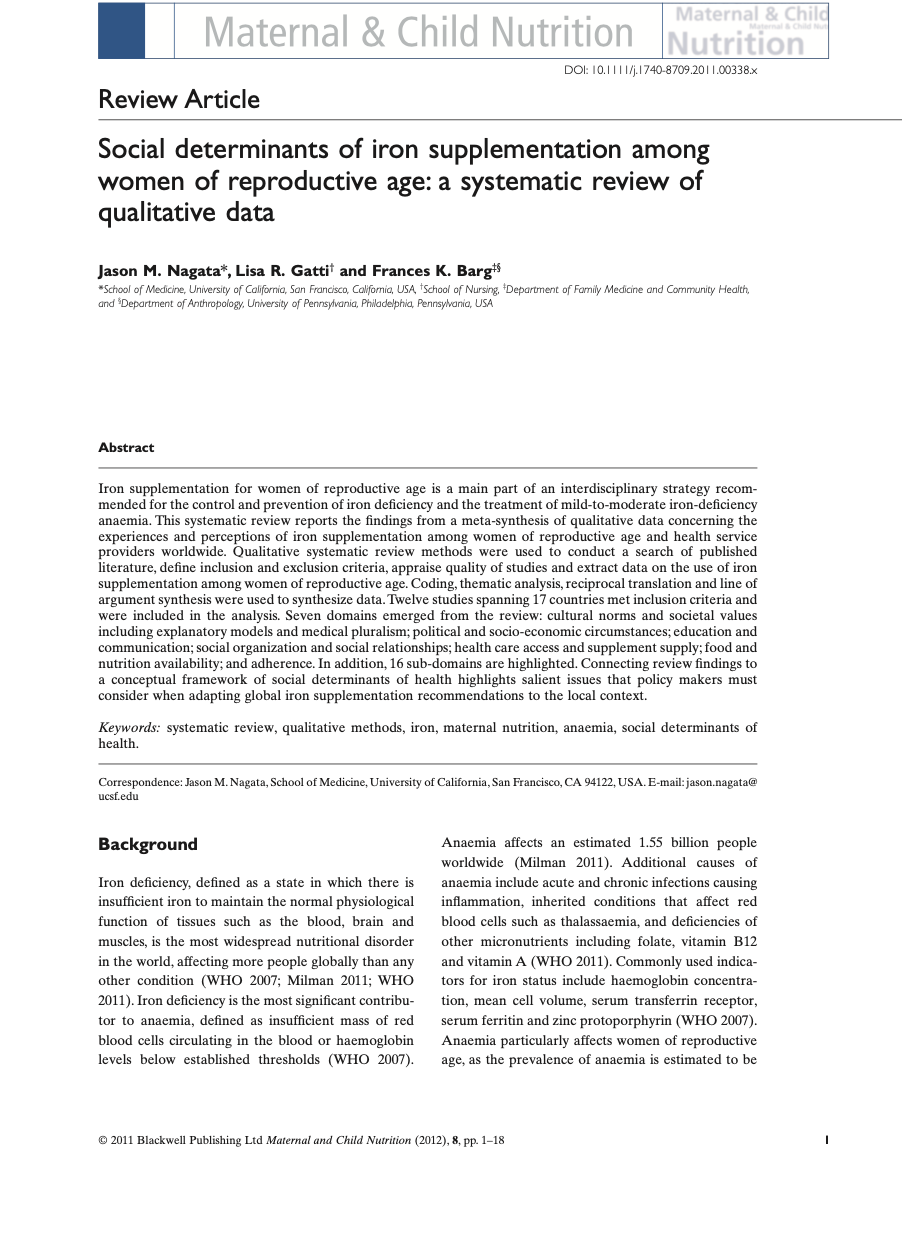Social Determinants of Iron Supplementation Among Women of Reproductive Age: a Systematic Review of Qualitative Data
Publication Year: January 2021
Authors: Jason M Nagata, Lisa R Gatti, Frances K Barg
Contributing Organization: Maternal Child Nutrition
Background: This systematic review analyzes the findings from a meta-synthesis of qualitative research that examines how women of reproductive age and healthcare providers worldwide view and experience iron supplementation programs.
Methods: A search of published literature was conducted using inclusion and exclusion criteria as well as appraising the quality of studies to extract data on the use of iron supplementation among women of reproductive age, using qualitative systematic review methods. The inclusion criteria were met by 12 studies that spanned 17 countries, and were included in the analysis.
Results: The review proposed seven main domains: cultural norms and societal values, political and socio-economic circumstances, education and communication, social organization and social relationships, health care access and supplement supply, food and nutrition availability, and adherence to recommendations.
Conclusions: The study’s findings align with a broader conceptual framework of social determinants of health, revealing important factors that policymakers need to address when adapting global iron supplementation guidelines to local contexts. This connection highlights the importance of considering social, cultural, and economic influences when implementing iron supplementation programs to ensure that interventions are relevant and effective for specific populations.

